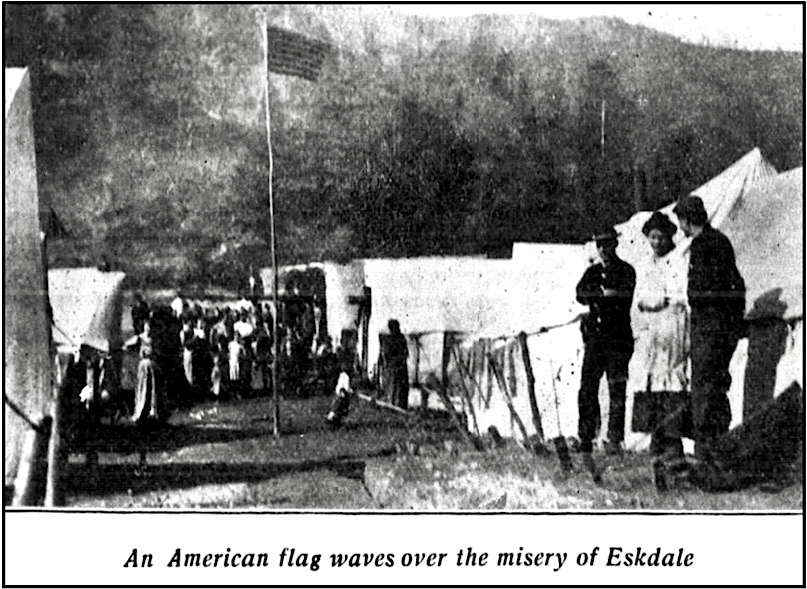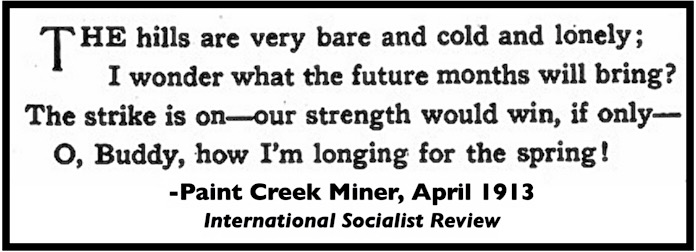 —————
—————
Hellraisers Journal – Thursday April 3, 1913
Ralph Chaplin Travels with Comrade Rumbaugh to West Virginia Strike Zone
From the International Socialist Review of April 1913:
[Part III of III.]
A brief account of a trip made by Comrade Rumbaugh, of Hurricane, W. Va., and myself to the danger zone, might be of interest to readers of the REVIEW. We rode into Charleston “on the front end” and found that city to have the appearance of a place preparing for a siege. Martial law had been declared but a short time previously and the streets were full of soldiers. Yellow-legged sentries were stationed in front of the state house and the governor’s residence. It was rumored that machine guns were mounted in the upper windows of the former building, commanding both entrances to the capitol grounds.
A sentry was also stationed in front of the office of the Labor Argus to guard Comrade W. H. Thompson, who is editing that paper while Comrade Boswell is being “detained” in the bull pen. Comrade Thompson is an ex-Kanawha county coal miner and is unblushingly ”red.” He is the editor of the Huntington Socialist and Labor Star and he has put up as staunch a fight for the cause of the miners as any man in the state. At the city jail we witnessed the interesting spectacle of a bunch of “tin horns” bringing a prisoner from the military district to the city lockup. As the great iron gates swung open to receive them, the spectators commenced hissing the soldiers, calling them “scab herders” and other expressive names. Some of the “yellow legs” glared at these people brazenly but, may they be given due credit, others of the soldiers hung their heads with shame, as if such condemnation from members of their own class was more deadly to them than bullets.
From Charleston we took the labor train that was to carry us into the martial law zone. At Cabin Creek we were almost arrested with a bunch of miners in the car who were poking fun at the grave and ludicrous antics cut by some of the would-be man-killers in khaki. At the Paint Creek junction we remained for several hours, ostensibly to visit some soldier boys of our acquaintance, but in reality to secure information and photographs for the REVIEW and the Labor Star. Comrade Rumbaugh was afterwards arrested and relieved of his camera for attempting to take photographs to illustrate this article. We spoke with dozens of the soldiers, and one of them, an ex-mine guard, admitted that the guards use dum-dum bullets against the miners. He told of two miners who had been killed with these proscribed missiles, one man who had the top of his head completely shot off and another who received a death wound in the breast large enough to “stick your fist into.”
The freight house at Paint Creek has been converted into a bull pen, and over fifty men are now incarcerated there, only three of whom are not native West Virginains. The interior of this place would make a Siberian prison pen look like a haven of refuge. The sleeping accommodations are inadequate, ventilation poor and the floors filthy beyond description. Even with two or three men sleeping in the coal-bin there is no room for the others. The only papers the prisoners are permitted to read are the reactionary local rags and the National Socialist. Mother Jones, Charles Boswell and John Brown have somewhat better quarters elsewhere in town. A sentinel is constantly measuring his paces before the door of each. Dear old Mother Jones in the bull-pen and guarded by armed mercenaries of the Mine Owners! The very thought of it makes blood boil, here in West Virginia.

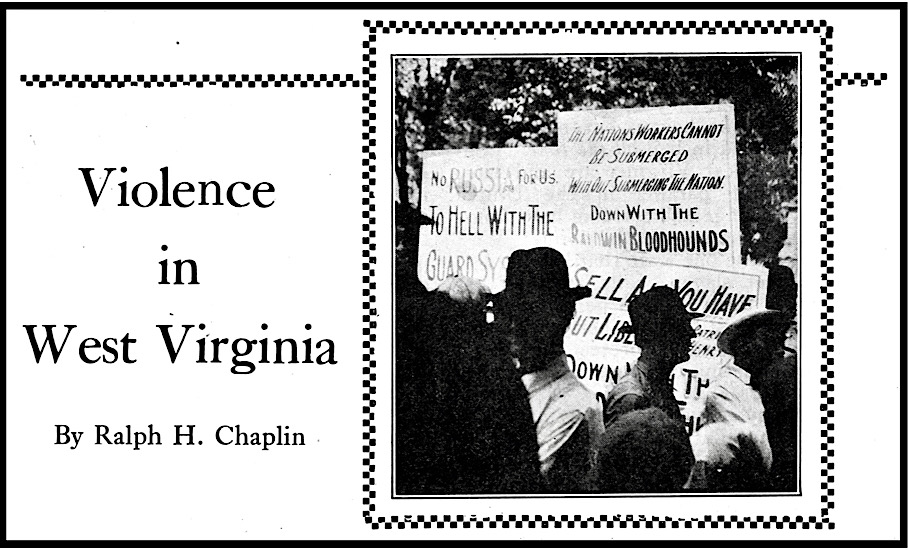
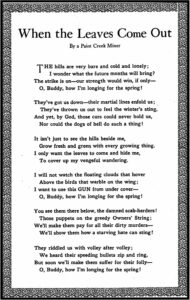
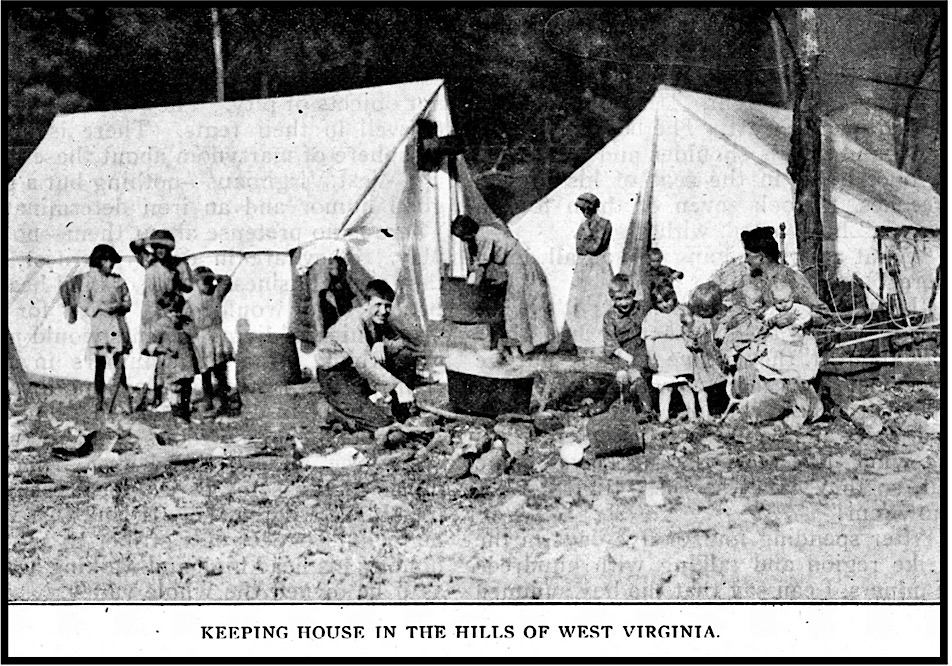
 —————
—————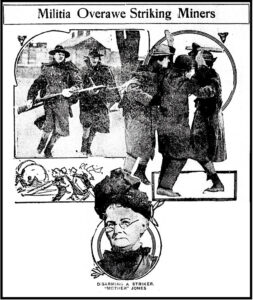
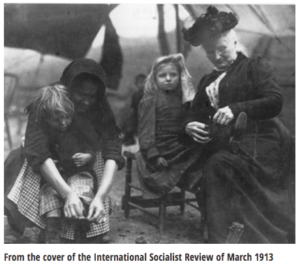
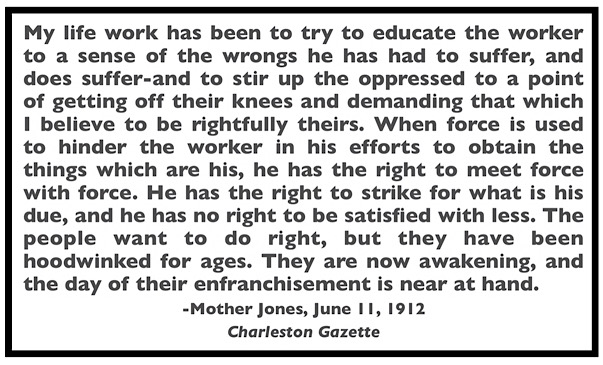 —————
—————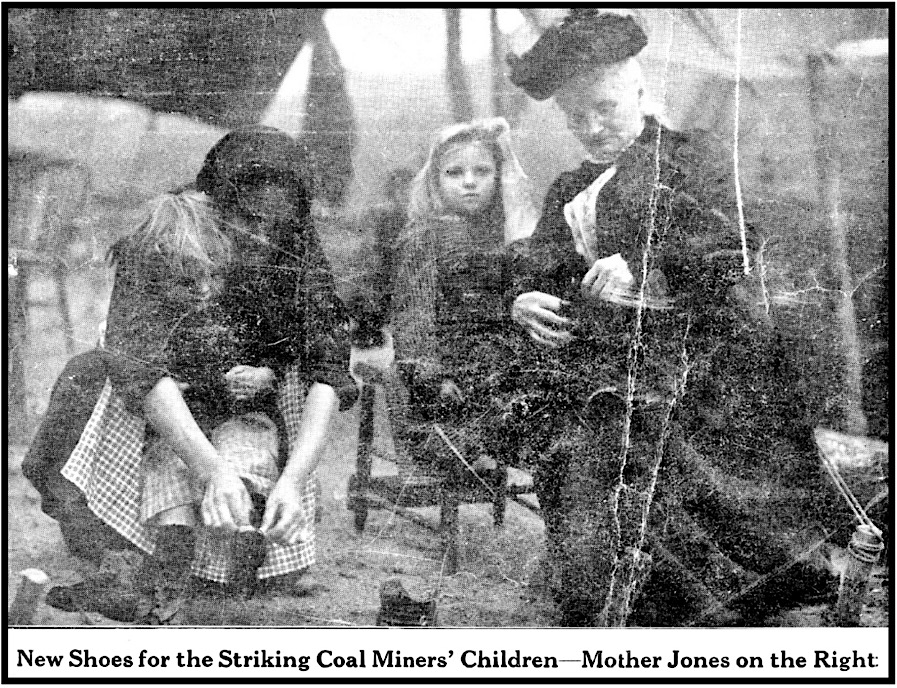
 —————
—————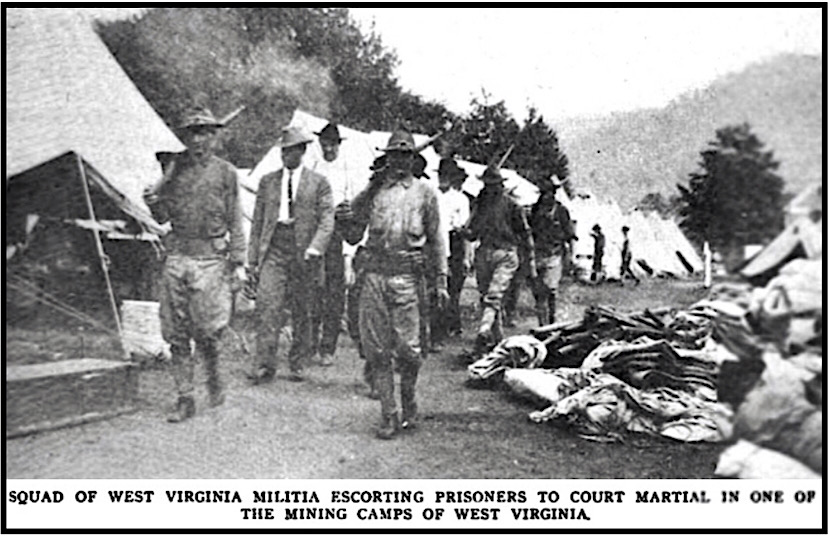
 —————
—————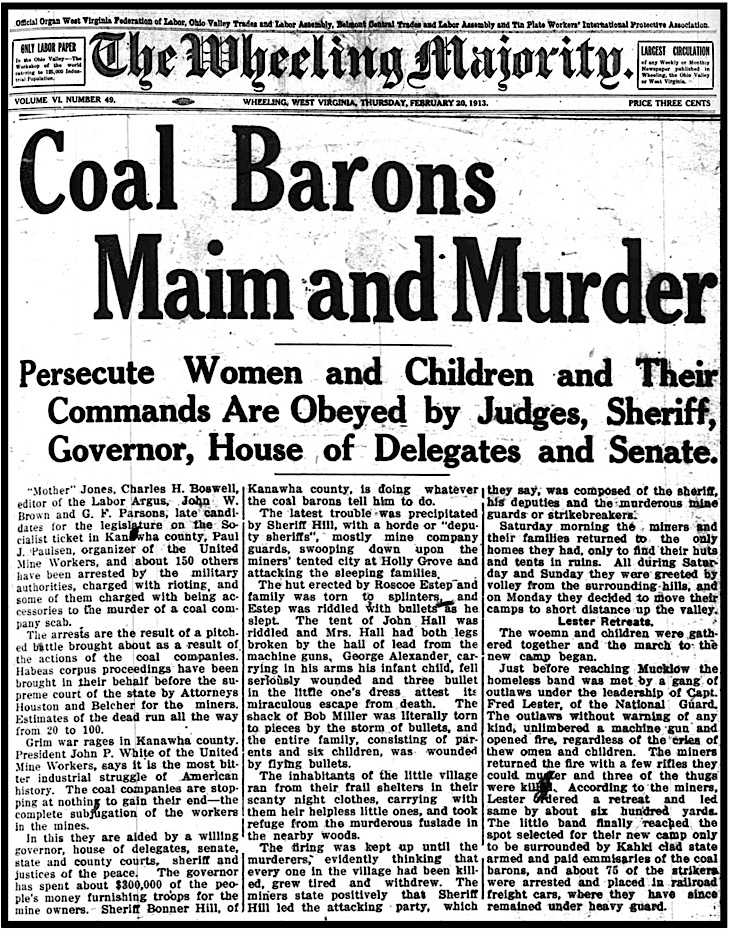
 —————
—————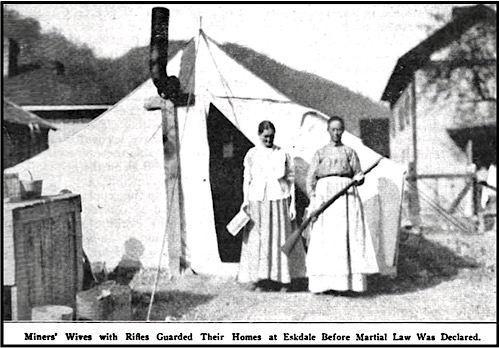
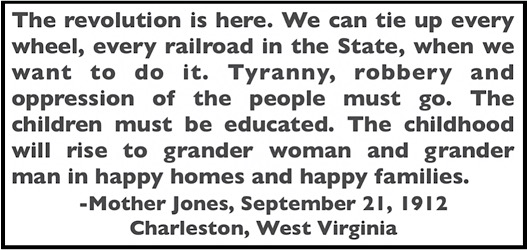 —————
—————